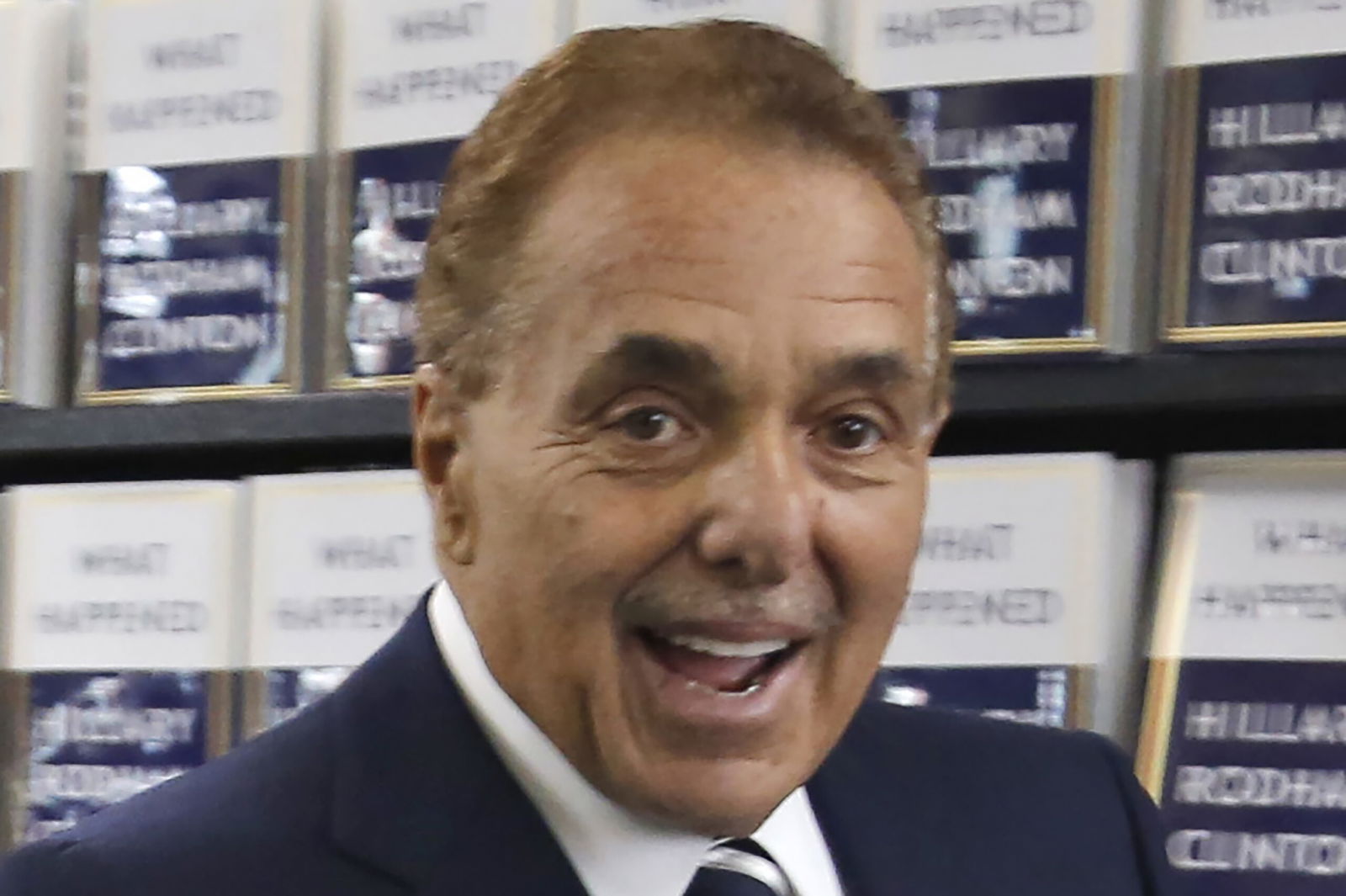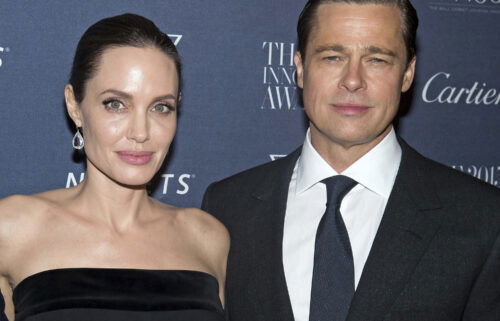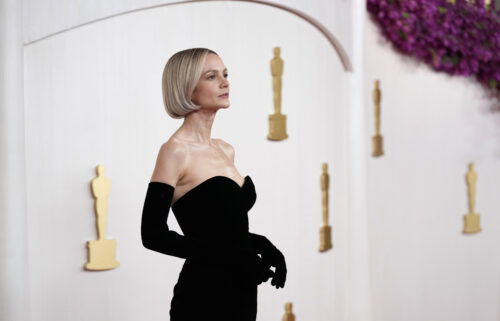Guilty Pleasures

By Associated Press
Leonard Riggio, who forged a bookselling empire at Barnes & Noble, dead at 83
NEW YORK | Leonard Riggio, a brash, self-styled underdog who transformed the publishing industry by building Barnes & Noble into the country’s most powerful bookseller before his company was overtaken by the rise of Amazon.com, has died at age 83.
Riggio died Tuesday “following a valiant battle with Alzheimer’s disease,” according to a statement issued by his family. He had stepped down as chairman in 2019 after the chain was sold to the hedge fund Elliott Advisors.
“His leadership spanned decades, during which he not only grew the company but also nurtured a culture of innovation and a love for reading,” reads a statement from Barnes & Noble.
Riggio’s near-half-century reign began in 1971 when he used a $1.2 million loan to purchase Barnes & Noble’s name and the flagship store on lower Fifth Avenue in Manhattan. He acquired hundreds of new stores over the next 20 years and, in the 1990s, launched what became a nationwide empire of “superstores” that combined a chain’s discount prices and massive capacity with the cozy appeal of couches, reading chairs and cafes.
“Our bookstores were designed to be welcoming as opposed to intimidating,” Riggio told The New York Times in 2016. “These weren’t elitist places. You could go in, get a cup of coffee, sit down and read a book for as long as you like, use the restroom. These were innovations that we had that no one thought was possible.”
He grew up working class in New York City, liked to say he preferred socializing with childhood pals over fellow business leaders and was informal enough among associates to be known as “Lenny.” But in his time no one in the book world was more feared. With the power to make any given book a bestseller, or a flop, to alter the market on an idle whim, Riggio could terrify publishers simply by suggesting prices were too high or that he might sign up such top sellers as Stephen King and John Grisham and publish them himself. He even tried to buy the country’s biggest book wholesaler, Ingram, in 1999, but backed off after facing government resistance.
By the end of the 1990s, an estimated one of every eight books sold in the U.S. were purchased through the chain, where front table displays were so valuable that publishers paid thousands of dollars to have their books included. Thousands of independent sellers went out of business even as Riggio insisted that he was expanding the market by opening up in neighborhoods without an existing store. Instead, independent owners spoke of being overwhelmed by competition from both Barnes & Noble and Borders Book Group, the rival chains sometimes setting up stores in close proximity to each other and to the locally owned business.
Barnes & Noble became so identified as an overdog that one of the 1990s’ most popular romantic comedies, “You’ve Got Mail,” starred Tom Hanks as an executive for the “Fox Books” chain and Meg Ryan as the owner of an endangered independent store in Manhattan.
“We are going to seduce them with our square footage, and our discounts, and our deep arm chairs, and our cappuccino,” Hanks’ character confidently declares. “They’re going to hate us at the beginning, but we’ll get ‘em in the end.”
Acrimony from independent booksellers
For a time, it seemed industry conversation was an ongoing response to Barnes & Noble. Publishers were known to change the cover or title of a book simply because a Barnes & Noble official had objected. “Angela’s Ashes” author Frank McCourt found himself condemned by the American Booksellers Association, the trade organization for independents, after agreeing to appear in a Barnes & Noble commercial. On the floor of the industry’s annual national trade show, long hosted by the ABA, independent store employees would hiss at attendees wearing Barnes & Noble badges.
When novelist Russell Banks, addressing Barnes & Noble’s annual shareholder meeting in 1995, declared that he was both a stock holder and a happy B&N customer, some independent sellers stopped offering his books.
“You must know that I’ll never read, buy or sell another word you write,” Richard Howorth, owner of Square Books in Oxford, Mississippi, wrote to him. “These are the kindest things I can think of to say to you.”
Tensions led to legal action when the ABA — on the eve of the 1994 convention — announced it was suing Barnes & Noble and five leading publishers for unfair trade practices. Some of the publishers were so angered they boycotted the gathering the following year and only returned after the ABA sold the show to Reed Exhibitions. In 1998, the ABA sued Barnes & Noble and Borders for unfair business practices (both cases were settled out of court).
The internet shifts bookselling
Riggio began the 2000s at the height of power, with more than 700 superstores and hundreds of others outlets. But internet commerce was growing quickly and Barnes & Noble, with its roots in physical retail, lacked the imagination and flexibility of the startup from Seattle that called itself “Earth’s Biggest Bookstore,” Amazon.com. The online giant launched in 1995 by Jeff Bezos gained business throughout the 2000s and by the early 2010s had displaced Barnes & Noble through such innovations as the Kindle e-book reader and the Amazon Prime subscription service.
Bezos would liken himself to David taking down Goliath, although the contrast between the leaders also had the feel of an Aesop’s fable: The muscular, mustachioed Riggio, a boxer’s son, upended by the quick and clever Bezos.
“We’re great booksellers; we know how to do that,’’ Riggio acknowledged to the Times in 2016. “We weren’t constituted to be a technology company.”
Barnes & Noble started its own online site in the late 1990s, but such initiatives as the Nook e-book reader and a self-publishing platform failed to stop Amazon. Not even the collapse of Borders after the 2008-2009 economic crisis mattered for Barnes & Noble, which after decades of expansion closed more than 100 stores between 2009 and 2019.
An unlikely ally of independent booksellers
By the time of Riggio’s retirement, independent sellers regarded the chain not as a threat, but as an ally in the fight against Amazon to keep physical stores alive. At the 2018 booksellers convention, Riggio and ABA CEO Oren Teicher, once enemies in business and in court, praised each other during a joint appearance.
“My standing here, doing what I’m about to do (introduce Riggio) would have been impossible to imagine several years ago,” Teicher said at the time. “The simple fact is that our business is stronger and American readers benefit when there is a vibrant and healthy network of brick-and-mortar bookshops all across the country.”
During the 2010s, Barnes & Noble seemed unleadable and unwanted. The board announced in 2010 that the company was for sale, but no one offered to buy it. Four CEOs left in five years and Barnes & Noble’s stock dropped 60% between 2015 and 2018. New rumors of a sale lasted for months before Elliott Advisors, which had previously purchased the British chain Waterstones, bought Barnes & Noble for $638 million and hired Waterstones chief executive James Daunt to lead B&N.
“I don’t miss being a business person, I had enough of that. But I do miss the bookselling part, helping to find books to recommend to customers,” Riggio told Publishers Weekly in 2021.
Riggio’s roots and early bookselling ventures
Bookselling and family often overlapped for Riggio. His brother Steve Riggio served for years as vice chairman of Barnes & Noble and another brother, Vincent “Jimi” Riggio, helped run a trucking company that shipped the store’s books. After being interviewed in 1974 by the trade publication College Store Executive, Leonard Riggio met for coffee with the editor, Louise Gebbia, who seven years later became his second wife (Riggio had three children, two with his first wife, one with his second).
Leonard S. Riggio was the eldest son of a prize fighter (who twice defeated Rocky Graziano) turned cab driver and a dress maker. Even in childhood, he advanced quickly, skipping two grades and attending one of the city’s top high schools, Brooklyn Tech. He studied metallurgical engineering at New York University’s night school before focusing on commerce, and by day absorbed the bookselling world and the rising cultural rebellion of the 1960s.
Working as a floor manager at the campus book store, he learned enough to drop out of school and start a rival shop in 1965 — SBX (Student Book Exchange), where he allowed student activists to use the copying machine to print copies of anti-war leaflets. SBX was so successful he bought several other campus stores and was in position by 1971 to buy Barnes & Noble and its single Manhattan store. A few years later, he became the rare bookseller to run television commercials, with the catchphrase “Barnes & Noble! Of Course! Of Course!”
Riggio and the independent community may have seemed to hold opposing values, but they shared a love of reading and the arts and a liberal political outlook. He was a generous philanthropist and a prominent supporter of Democratic politicians. He was even friendly with the consumer activist and presidential candidate Ralph Nader, who featured Riggio, Ted Turner and Yoko Ono among others in his 2009 novel “Only the Super-Rich Can Save Us!”, in which Nader imagines a progressive revolution from above.
“Ever since he was a boy from Brooklyn, he’d had a visceral reaction to the way workings stiffs and the poor were treated on a day-to-day basis,” Nader wrote of Riggio, who did at times stand apart from his management peers. When some 200 business leaders were questioned by Fortune magazine in the 1990s about their political ideas, only Riggio supported the raising of worker pay.
“Money can become a burden, like something you carry on your shoulders,” he told New York magazine in 1999. “My nature is to be a ball-buster, but my role is to help people.”
Ex-gang leader accused in Tupac Shakur killing won’t be released on bond
LAS VEGAS | A judge on Tuesday again rejected a request to free an ailing former Los Angeles-area gang leader ahead of his murder trial in the 1996 killing of hip-hop star Tupac Shakur, saying she suspects a cover-up related to the source of the funds for his bond.
The decision from Clark District Court Judge Carli Kierny came after an attorney for Duane “Keffe D” Davis said he would provide additional financial records to prove that the music record executive offering to underwrite Davis’ $750,000 bail obtained the money legally. Kierny said she was unconvinced after receiving two identical letters apparently from an entertainment company that music record executive Cash “Wack 100” Jones says wired him the funds as payment for his work.
One letter was signed with a name that does not have any ties to the company, the judge said, while the second letter included a misspelled name and a return address tied to a doctor’s office.
“I have a sense that things are trying to be covered up,” Kierny said.
The hearing took a turn when Davis’ lawyer, Carl Arnold, said the bail bond agent used by Davis had provided the entertainment company with instructions on the language for the letters and could therefore testify about their legitimacy.
In a scathing response, prosecutor Binu Palal said the bond dealer may have committed a felony crime by submitting “a false document to this court.”
“The state takes that very seriously,” he said. “Be advised that it will not go uninvestigated.”
Palal declined after court to comment. Arnold appeared at the hearing via Zoom and a spokesperson for him didn’t immediately respond to an email message seeking comment afterward.
Davis has sought to be released since shortly after his September 2023 arrest, which made him the only person ever to be charged in one of hip-hop’s most enduring mysteries.
Kierny previously rejected Davis’ bid to have Jones put up $112,500 to secure Davis’ release, saying she was not convinced that Davis and Jones weren’t planning to profit. She also said she couldn’t determine if Jones wasn’t serving as a “middleman” on behalf of another unnamed person.
Nevada has a law, sometimes called a “slayer statute,” that prohibits convicted killers from profiting from their crimes.
Jones, who has managed artists including Johnathan “Blueface” Porter and Jayceon “The Game” Taylor, testified in June that he wanted to put up money for Davis because Davis was fighting cancer and had “always been a monumental person in our community … especially the urban community.”
Davis has pleaded not guilty to first-degree murder. Also Tuesday, Kierny pushed back the start of Davis’ trial from Nov. 4 to March 17.
Davis and prosecutors say he’s the only person still alive who was in a car from which shots were fired into another car nearly 28 years ago, killing Shakur and wounding rap music mogul Marion “Suge” Knight. Prosecutors allege that the gunfire that killed Shakur in Las Vegas stemmed from competition between East Coast members of a Bloods gang sect and West Coast groups of a Crips sect, including Davis, for dominance in a genre known at the time as “gangsta rap.”
Judge orders Martin Shkreli to turn over all copies of unreleased Wu-Tang Clan album
NEW YORK | Martin Shkreli, once dubbed “Pharma Bro” for boosting the price of a life-saving drug, was ordered by a federal judge Monday to turn over all copies of Wu-Tang Clan’s unreleased “Once Upon a Time in Shaolin” album to his lawyers by Friday.
Judge Pamela K. Chen in Brooklyn wrote that Shkreli must produce all copies of what is sometimes referred to as the world’s rarest album and report the names of anyone he distributed the music to by Sept. 30, along with any revenues he received from it.
In June, Shkreli was sued by a cryptocurrency collective that bought the only known copy of the album for $4.75 million.
The collective, PleasrDAO, accused Shkreli of retaining digital copies of the album in violation of their deal and disseminating them widely among his social media followers.
PleasrDAO attorney Steven Cooper said in a statement that Chen’s ruling was “an important victory for our client.”
He added: “We are pleased that Judge Chen recognized that immediate relief was necessary to thwart the continuing bad acts of Mr. Shkreli.”
Edward Paltzik, a lawyer for Shkreli, said in an email that the judge’s order maintained “the perceived status quo” of the lawsuit’s progression and has “no bearing whatsoever on the final outcome of the case.”
He also noted that the judge did not make a finding that PleasrDAO was likely to succeed on the merits or that its allegations were true.
The Wu-Tang Clan spent six years creating “Once Upon a Time in Shaolin” before putting a single copy of the 31-track double album up for auction in 2015 on the condition that it not be released publicly. The multiplatinum hip-hop group wanted it viewed as a piece of contemporary art.
Shkreli bought the album for $2 million before he was convicted of lying to investors and cheating them out of millions of dollars in two failed hedge funds he operated.
In 2021, “Once Upon a Time is Shaolin” was sold to satisfy some of Shkreli’s court debts.
Shkreli was released from prison in 2022 after serving much of a seven-year sentence.
—From AP reports


